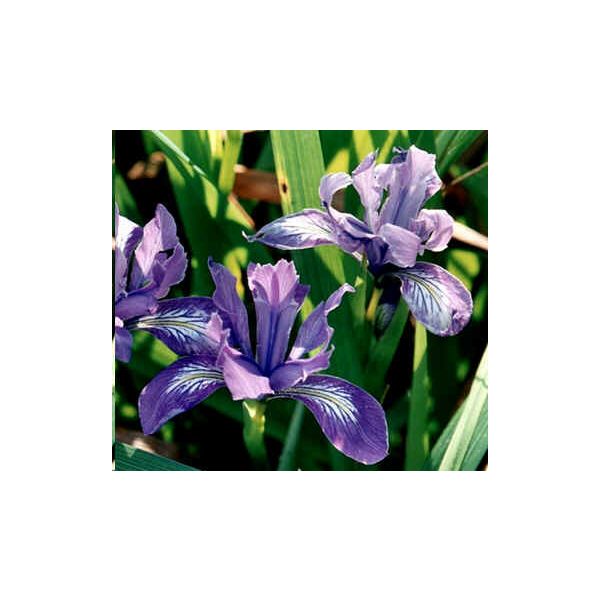Iris Douglasiana Seeds
Iris Douglasiana Seeds
Less resistant to cold than other Iris. Requires full sun to light shade.
Availability: Out of stock
SKU
Iris Douglasiana
Iris douglasiana, called the Douglas Iris, is found naturally in North America, mostly in California and Oregon, where it grows in mountain regions or near coasts. This Iris has sumptuous and odorant flowers. The adult plant is no taller than 20 inches tall.
The flowers consist of 3 sepals and 3 petals. They are about 3 inches in diameter, pale to dark purple or blue and have purple, yellow and white markings. They are very fragrant. Flowers appear on tall stems. Each stem holds a single flower, sometimes two. In frost-free areas, plants bloom from spring to summer and intermittently throughout winter. The plant is self-fertile.
Iris douglasiana develops narrow, sword-shaped pale green leaves rising 1 foot tall or less. The plant spreads by means of its modified stems, rhizomes, which are located below the soil surface.
Hardiness zones 8-10, (-10øC/15øF, 1øC/35øF) in winter. It is less resistant to cold than other Iris. It requires full sun to light shade. In grown in pot, bring the plant inside in winter. In the wild, it grows in rocky spots or sunny fields.
Iris douglasiana enjoys a sunny spot in sandy soil. It requires a well-drained soil but must be watered regularly to maintain the soil humid. It can grow in full sun or light shade. It blooms more regularly with regular water.
| Common name | Iris |
|---|---|
| Species | Iris douglasiana |
| Germination | First, you can scarify the seeds to try to speed up germination. For faster germination, soak the seeds in slightly hot water for 24-48 hours, followed by 3 months cold stratification before sowing, 1/4 inch deep, in your soil. Keep damp soil, not soaking wet. Keep pot in warm situation 20øC/68øF. Germination usually takes several months. It can be more, depending on their degree of unbroken dormancy, don't give up. |
| Scarification / Stratification | Seed coats may be so hard that they are impermeable to water. They need to be scratched or broken using a knife or sandpaper, in order to germinate. Chip the seeds with a sharp knife or make a few swipes with a sharp edged file or use sandpaper to allow moisture being more readily absorbed. |
| Price View | Price Range |

